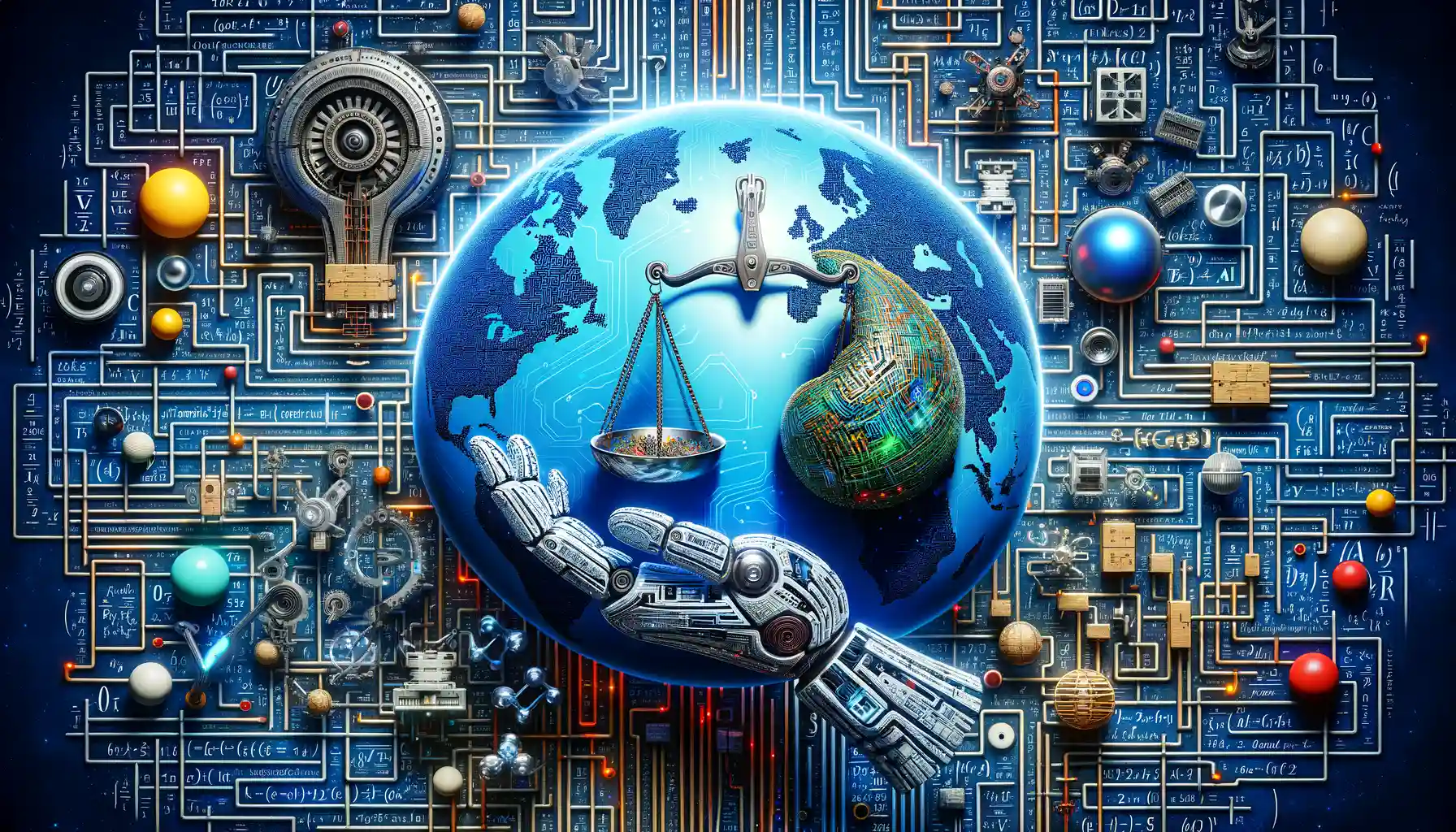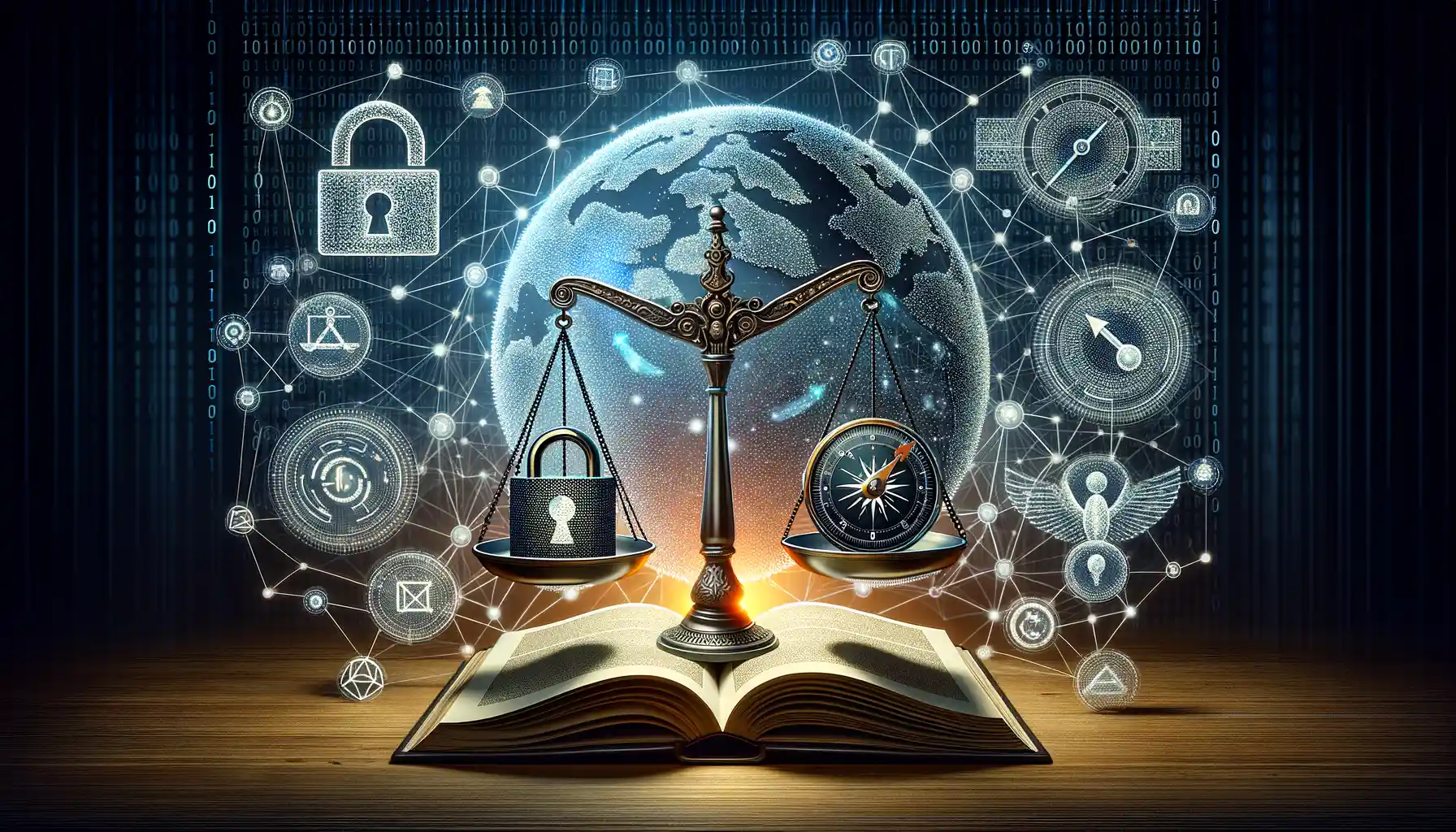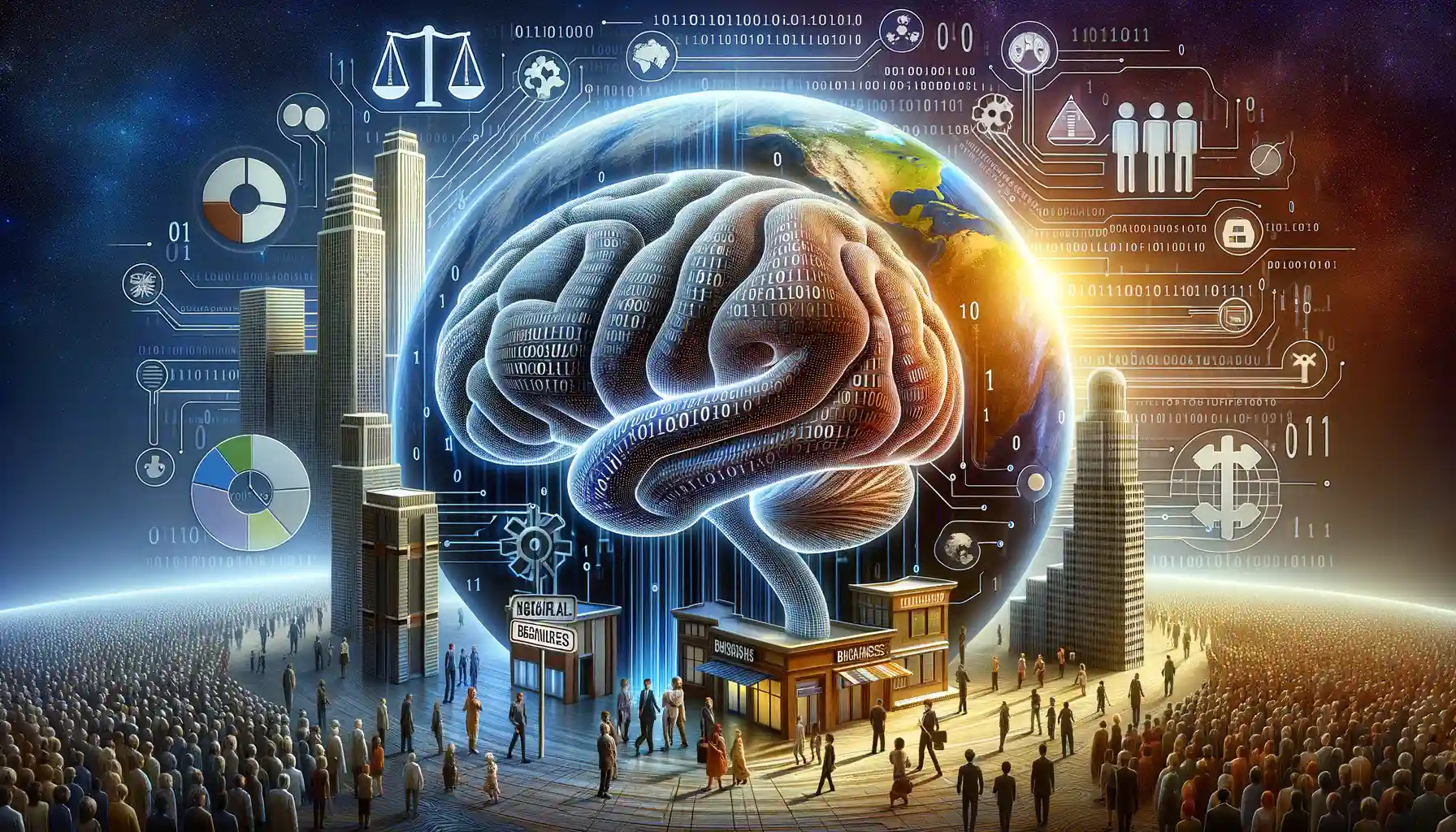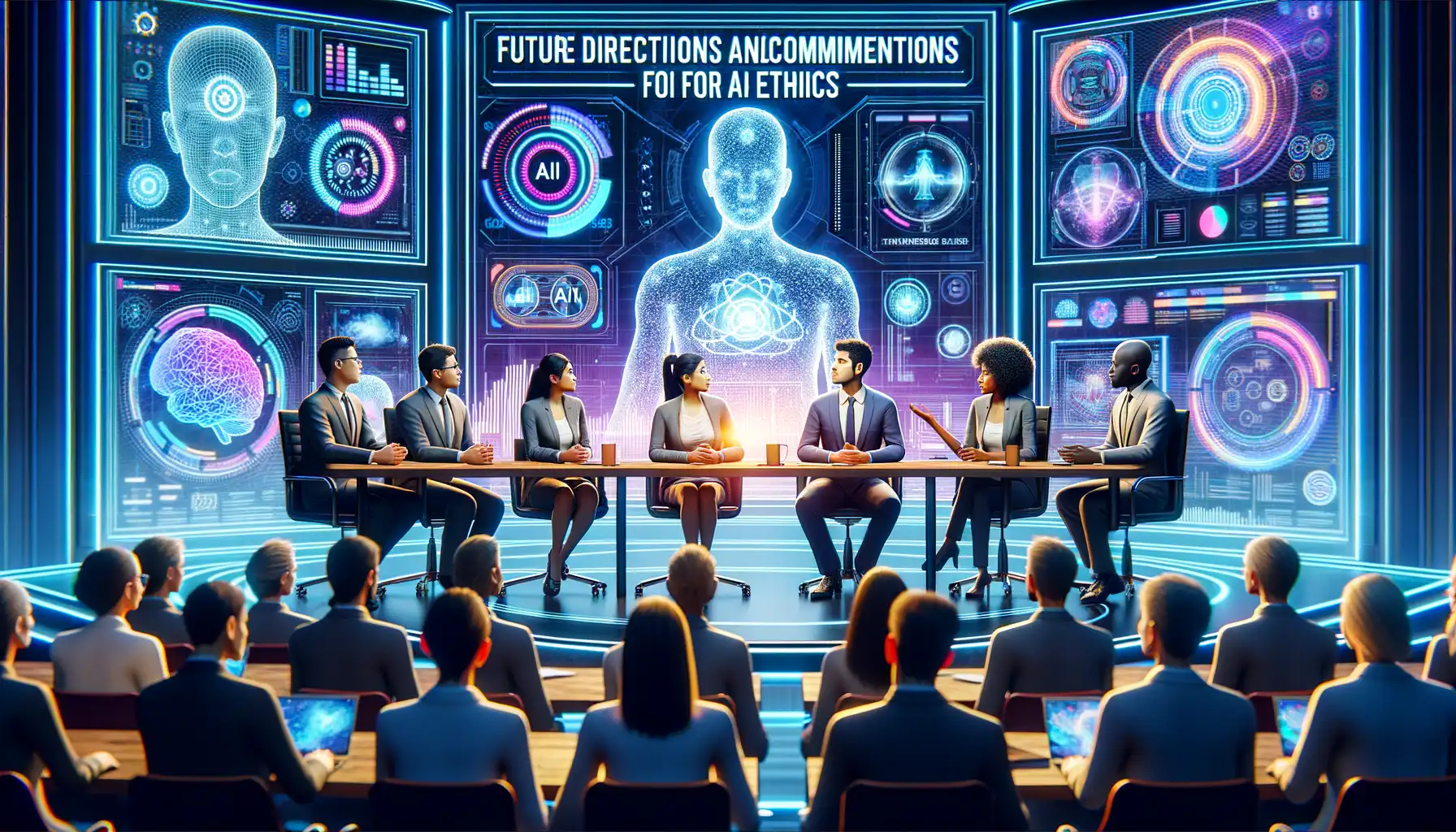Understanding the Fundamentals of AI Ethics
Why AI Ethics Matter More Than Ever
Imagine a world where machines make life-altering decisions—who gets a loan, which medical treatments are prioritized, or even who lands their dream job. Sounds futuristic, right? But it’s happening now, and this is exactly why understanding the core of AI ethics is critical. At its heart, AI ethics is about navigating the tightrope between innovation and responsibility. Without it, we risk building systems that unintentionally harm rather than help.
One key example? Facial recognition technology. It’s dazzling when your phone unlocks with a mere glance, but what about the documented instances where such systems fail to properly identify people of diverse ethnic backgrounds? This isn’t just a flaw—it’s a wake-up call for ethical oversight.
- How do we ensure AI treats every user fairly?
- What happens when algorithms inherit human biases?
- Who’s accountable for mistakes made by autonomous systems?
AI ethics isn’t some abstract concept reserved for tech giants—it’s about everyday lives, choices, and dignity. And if we get it wrong? The consequences could ripple far beyond just “glitches.”
Challenges and Controversies in AI Ethics

The Tug-of-War Between Innovation and Responsibility
Picture this: on one side, you’ve got the astonishing breakthroughs of AI—self-driving cars, personalized medical treatments, algorithms that predict everything from weather to shopping habits. On the other side? A growing storm of ethical dilemmas, controversies, and challenges. It’s not a neat debate; it’s chaotic, messy, and deeply human.
The problem lies in the gray areas. For instance, how do we tackle biases in AI? Machines, after all, learn from data created by humans, and those biases sneak in like uninvited guests. A facial recognition system might misidentify someone because its training data wasn’t diverse enough. Sounds small, but imagine being denied access to a building or flagged by law enforcement because of an algorithm’s mistake—terrifying, right?
Then there’s the question of *who* controls the keys to AI’s power. Should governments have oversight? Tech companies? Or a coalition of independent voices? The stakes are sky-high, with risks like loss of privacy or even job displacement.
- Privacy: AI systems often collect more data than we realize. Is it right to trade convenience for the unknown cost of personal freedom?
- Accountability: When bots fail or harm occurs, who’s to blame—the coder, the company, or the machine?
The Uneasy Role of “Black Box” Algorithms
Here’s where things get downright spine-tingling: many AI systems operate as a so-called “black box”. That means their decision-making processes are so complex, even their creators can’t fully explain them! Imagine being judged by something smarter than you but unable to demand answers from it.
This opacity breeds mistrust. What if an AI denies someone a loan, but no one can say why? Worse still, what happens when such systems dictate decisions in critical areas like healthcare, hiring, or criminal justice? Blind faith in machines isn’t just risky—it’s reckless.
Addressing these challenges is urgent, but solutions aren’t simple. Transparency, stricter regulations, and ethical guardrails are some ideas floating around, yet implementing them feels like trying to steer a rocket ship mid-flight. Still, isn’t it worth attempting?
Key Principles for Ethical AI Development

Building AI on a Foundation of Integrity
Creating ethical AI is more than just technical know-how—it’s about embedding a moral compass into machines that will shape our future. Imagine you’re sculpting a piece of art: every detail matters, from the first chisel mark to the final polish. That’s what ethical AI development is, a masterpiece in the making.
At its core, this process demands a fierce commitment to transparency and fairness. For example, when an AI model decides who gets approved for a loan or recommended for a job, it needs to work like an utterly impartial judge. No secret biases, no hidden agendas—just pure justice encoded in lines of code. These principles aren’t just words; they’re the safety rails keeping the system fair and inclusive for everyone.
Essential Ingredients for Ethical AI
So, what makes AI truly ethical? Here are some guiding principles:
- Accountability: Who’s responsible when AI makes a mistake? Developers and companies must clearly own up to their creations’ actions.
- Privacy Protection: Data used by AI must be handled with the care of a locked treasure chest—no exceptions, no shortcuts.
- Non-Discrimination: AI should treat everyone equally, regardless of race, gender, age, or any other factor.
Without these priorities, the trust between users and technology can shatter like glass. The stakes are high because AI doesn’t live in a vacuum—it impacts real people in the real world, every day.
Impacts of AI Ethics on Society and Businesses

Transforming Lives and Redefining Industries
The ripple effects of AI ethics spread wide, touching both the soul of society and the backbone of businesses. Picture this: a hiring algorithm favoring diversity instead of perpetuating bias. When ethical considerations guide AI, we see fairer workplaces, smarter healthcare systems, and smarter cities that leave no one behind. Society thrives when technology respects our values.
Now shift your gaze to businesses. Imagine a customer trusting a company’s chatbot not just because it’s quick, but because it safeguards their privacy. Ethical AI isn’t just a moral obligation; it’s a competitive edge. Brands that prioritize transparency and fairness find themselves on a pedestal, earning loyalty in an age where trust is gold.
- Recruitment tools free from discrimination elevate company culture.
- Transparent algorithms, like Spotify’s music suggestions, make users feel seen and heard.
- AI-driven products designed with accessibility break barriers, opening markets previously untapped.
But on the flip side, ignoring these ethical threads can unravel reputations. We’ve all read the headlines—tech giants facing backlash for biased outcomes or misuse of data. The stakes? Enormous. This isn’t just about doing what’s right; it’s about survival in a world that demands accountability.
From Theory to Real-World Impact
Ethical AI shifts from abstract philosophy to concrete change on the ground. Consider healthcare: an AI diagnosing patients sounds revolutionary, but without inclusive training data, it might miss key signs in minorities. Businesses and governments alike face a crucial question—how do we ensure AI lifts everyone, not just a select few?
In agriculture, for instance, AI-powered farming tools now help even the smallest farmers optimize yields. But when these tools are developed with profit alone in mind, marginalized communities may be left behind. A farmer in rural India or Kenya deserves tools as robust and thoughtful as those designed for Silicon Valley executives.
It’s here, at this intersection of humanity and profitability, where ethical AI builds—or dismantles—the future we’re collectively shaping. The stakes aren’t hypothetical anymore. They’re playing out in real-time, affecting the lives of billions.
Future Directions and Recommendations for AI Ethics

Charting a Path Toward Ethical AI Innovation
The future of AI ethics isn’t just some distant, abstract concept—it’s being shaped here and now, by thinkers, creators, and decision-makers like you. Imagine this: every line of code written today could ripple through generations, influencing not only machines but the people who depend on them. So, what steps should we take to ensure this influence is positive, fair, and far-reaching?
- Proactive Regulation: Governments and global organizations must lay down frameworks that evolve with AI’s rapid development. This isn’t about stifling creativity; it’s about creating a playing field where innovation aligns with humanity’s core values.
- Diversity in AI Teams: Let’s face it—algorithms trained by narrow perspectives will never reflect the richness of our world. From engineers to ethicists, bringing together diverse voices ensures AI serves everyone, not just a select few.
- Continuous Audits: Just like humans, AI systems should be held accountable for their “actions.” Routine checks can spot bias, flag potential misuse, and refine outcomes.
Empowering Everyday People in AI Ethics
Ethics shouldn’t stay locked in academic ivory towers or boardrooms filled with tech execs. Let’s consider the everyday user—your friend browsing TikTok or your neighbor relying on GPS navigation. Empower them. How? By making AI ethics accessible. Picture this: clear, digestible transparency reports for every AI-driven app you use. Or built-in tools that let users understand (and tweak!) how decisions are made on their behalf.
Oh, and here’s another bold idea: why not introduce AI ethics education from high school onward? Equip the next generation with the critical thinking skills they’ll need in an AI-saturated world. After all, the future of ethical technology doesn’t rest solely in the hands of coders; it rests in all of ours.
